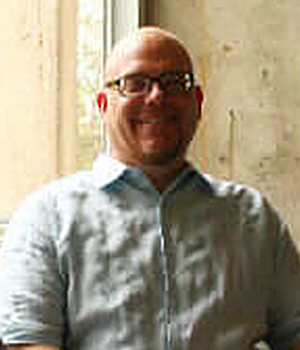
Follow Ras Michael L. BROWN at February 26th 2022, Webinar eilth on Zoom
Professor Ras Michael Brown is an associate professor of History and Africana Studies at Southern Illinois University specializing in the histories of the religious and environmental cultures of African-descendant communities, especially those in the South Carolina-Georgia Lowcountry and the Kongo-Angola regions of West-Central Africa. He completed his undergraduate studies in History at South Carolina State University, obtained his M.A. in African-American history at Bowling Green State University, and earned his Ph.D. degree in African Diaspora history at the University of Georgia. Dr. Brown found a welcoming academic home at Dillard University in New Orleans, where he taught and mentored many “Bleu Devils” until the end of Dillard’s first recovery year following Hurricane Katrina. He joined the faculty at Southern Illinois University in 2006 and has instructed numerous “Salukis” in the graduate and undergraduate programs since arriving in Carbondale.
Professor Brown’s research and teaching interests engage multiple facets of African American and African Diaspora cultures from the 17th century into recent times. His primary focus on the interdependence of religion and ecology in early African American and West-Central African communities guides explorations of the ideas and practices devised by African descendants to live in diverse natural environments and to nurture their spiritual cultures over numerous generations as they experienced tremendous forces of change. Further, the challenges presented by this kind of research drive Dr. Brown’s deep commitment to pushing methodological and theoretical boundaries forward by prodding historical inquiry into continuous dialogue with other disciplines essential for better understanding spiritualities and natural ecologies over time. Dr. Brown’s first book, African-Atlantic Cultures and the South Carolina Lowcountry (Cambridge University Press, 2012), follows the long-term evolution of a kind of nature spirit known as simbi in Kongo and South Carolina that transformed into spiritual agents African-descended people later relied upon to express their transition to Protestant Christianity and their moral critiques of captivity in the nineteenth century. In addition to assisting in the collective spiritual journey of enslaved African Americans, these nature spirits provided a cultural template for displaced Africans to ground their hunting and planting cultures in new lands and create new communities across landscapes of oppression. African-Atlantic Cultures and the South Carolina Lowcountry was honored by the Journal of Africana Religions as the inaugural recipient of the “Albert J. Raboteau Book Prize for the Best Book in Africana Religions” in 2013.
A second book project, A Black Country, attempts to explain the early growth of African American communities and their cultures as an instantiation of African Atlantic approaches to indigeneity rooted in the relentless innovation and sophisticated pluralism essential to the historical development of African religious and environmental cultures. This study links the analysis of conceptual expressions and material manifestations to integrate seemingly disparate topics (such as religious conversion, malaria, and rice planting) into a narrative that better accounts for the internal processes that shaped early African American communities. In addition to working on the book manuscript, Dr. Brown has been collaborating on an article draft that examines healing groups in nineteenth-century Brazil as variations on West-Central African spiritual and political initiation societies. Also, he was recently invited to an interdisciplinary seminar on Artificial Intelligence to present the early stages of research on a Kongo theory of technology that will form the basis of a paper titled “Simbi Power: Spiritual Frameworks for Creating and Adapting New Technologies” for presentation at the African Studies Association conference in November 2018.
Professor Brown’s essay “Gullah and Ebo: Reconsidering Early Lowcountry African American Communities” will soon appear in Southern Communities: Identity, Conflict, and Memory in the Nineteenth-Century American South (Steven E. Nash and Bruce E. Stewart editors, University of Georgia Press, in production). Other articles and essays include: “The Immersion of Catholic Christianity in Kalunga,” Roundtable on Black Catholicism, Journal of Africana Religions, 2, 2: 246-255 (2014); “Original Claims and Haunted Forests: American Indians, African Americans, and Southern Spiritual Landscapes in the Writings of William Gilmore Simms,” The Simms Review 20, 1-2: 29-49 (2013); and “Mother Nganga: Women Experts in the Bantu-Atlantic Spiritual Cultures of the Iberian Atlantic World” in Women of the Iberian Atlantic, edited by Sarah E. Owens and Jane E. Mangan, Louisiana State University Press, 196-229 (2012). His contributions to scholarship on the religious history of African-descended people led to Dr. Brown’s membership on the Editorial Board of the Journal of Africana Religions starting in 2016.
At Dillard and SIU, Dr. Brown has had the pleasure to mentor students in the Mellon Mays Undergraduate Fellowship Program (Dillard) and the McNair Scholars Program (SIU). His teaching of undergraduate courses received recognition with the award of “Outstanding Faculty Member Teaching in the University Core Curriculum” in 2010, and the “George S. and Gladys W. Queen Award for Outstanding Teacher in the History Department” in 2011. Dr. Brown has devoted a great deal of attention to graduate students, as well, including participation on 14 dissertation committees, 13 doctoral preliminary examination committees, 12 Master’s thesis committees, and 14 Master’s comprehensive examination committees over the past 12 years at Southern Illinois University. From 2015 to 2018, Dr. Brown oversaw the operations of the History Department’s Ph.D. and M.A. programs as the Director of Graduate Studies. This period included the development and implementation of the Accelerated Master’s in History program and collaboration with the American Historical Association’s Career Diversity program. Dr. Brown’s service to the University community has recently involved efforts as a sub-committee co-chair for the University’s accreditation preparations with the Higher Learning Commission and as the academic committee chair on the Chancellor’s Diversity Council, which included designing an ambitious Diversity Curriculum for inclusion in the core curriculum.